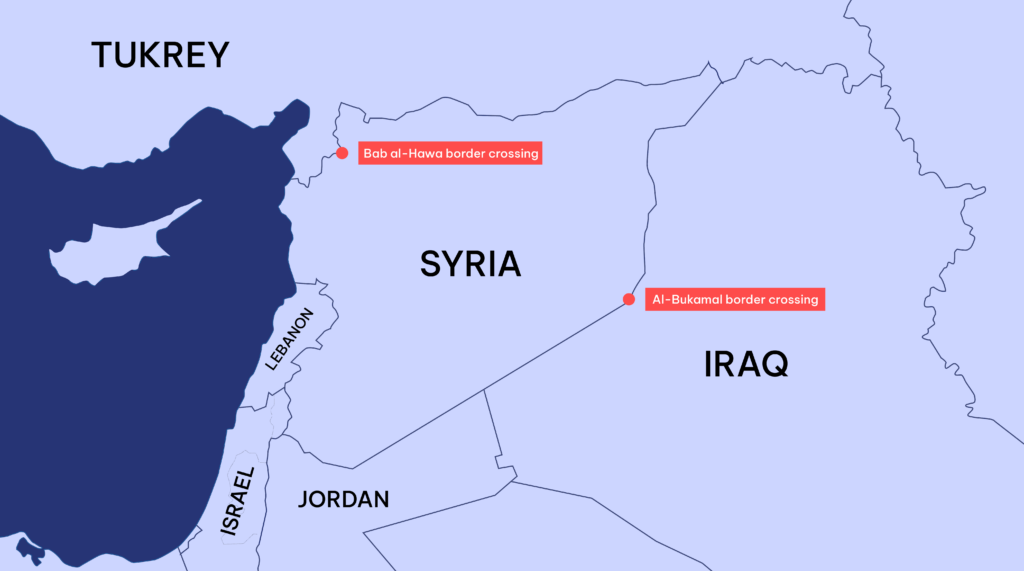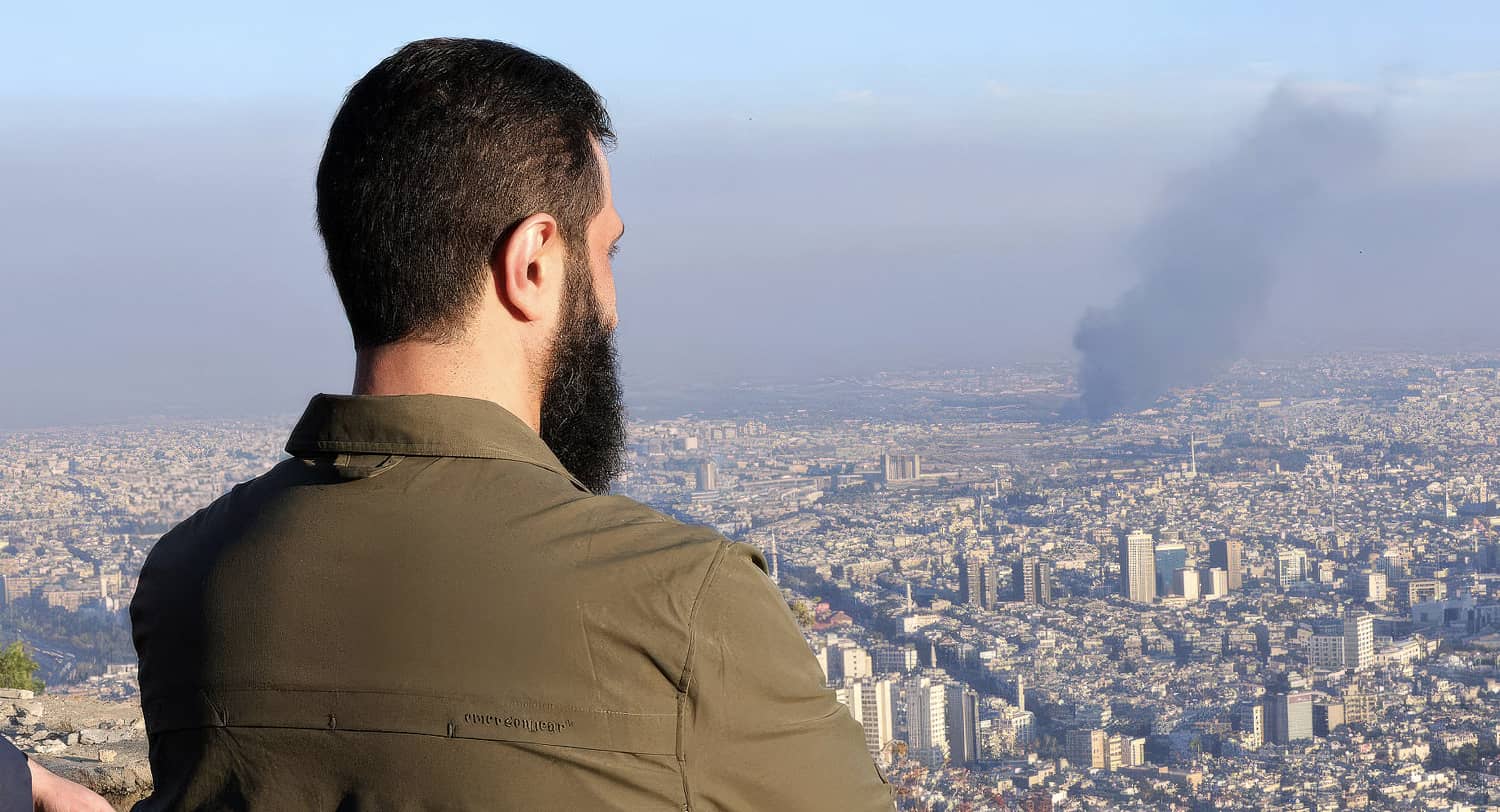The speed with which the Syrian regime crumbled surprised even Syria-watchers, those who knew the depth of the rot. Corrupt, hated, cruel – that’s how Assad’s regime was seen by Syrian citizens. Many kept protesting against the regime for many months in southern, Druze-dominated Sweida province as well as other spots. The outside world stopped taking interest in Syria after Russia and Iran achieved a military victory to prop up Bashar al-Assad, but the conflict didn’t go away. It continued to simmer, until it finally exploded in late November 2024.
In the West, and also in Israel, some experts said “the familiar evil is better than the unknown one.” But many Syrians, both in the country and abroad, felt only joy when Syrian soldiers deserted their posts and allowed the rebels to take over Aleppo, Hama, Sweida and other cities and villages, culminating in Damascus.
The attempt of Assad apologists to portray Assad as “the protector of the minorities” is pathetic: no one in Syria was ever safe. Even the most loyal elements to the regime knew that they could be purged and eliminated. Over the five decades of Assad’s family rule, hundreds of thousands of Syrians – Sunni, Shi’a, Kurds, Christians and ‘Alawis – went through Syrian jails. Many never came back, and now thousands of Syrian families await either release of their loved ones or news of what happened to them from the archives seized by the rebels.
So far, the Syrians clearly prefer the rebels, despite their problematic connections with al-Qa’ida and other jihadi groups. Today Abu Muhammad al-Joulani, leader of Hayat Tahrir al-Shams (HTS), tries hard to control the situation. He has promised security for every Syrian minority community and assures foreign governments that under his leadership Syria will not try to take revenge on those who stood with Bashar Assad and helped him butcher the Syrian people. But it’s unclear whether he will be able to deliver on his promises when the regime apparatus is gone, and his group will reign.
Today the rebels promise to step down once the transition to an inclusive government is completed. So have many other militarized groups who took over in revolutions or military coups. The Middle East doesn’t know many George Washingtons, who voluntarily relinquish power. It’s also very possible that the collapse of the regime will be just the beginning of another round of sectarian violence and civil war in the country, rather than reconciliation.
And yet, despite the uncertainty and fear of violence, something positive might come out of the Syrian mess. Assad depended on Iran’s militias for his survival, although in his darkest hour they failed him. The rebel groups – both HTS and the Kurds – sit astride Syrian gateways to Lebanon. The Kurdish Syrian Democratic Forces faction, supported by the US, now controls the strategic Al-Bukamal crossing point to Iraq, while the HTS, whose members joyfully celebrated the death of Hassan Nasrallah, have taken over the Bab al-Hawa border area near Aleppo. Both groups have zero interest in reviving the land bridge between Iran to Lebanon.

The US will need to continue supporting the Kurds, while the moderate Arab countries can play a huge role in Syria’s economic revival. There was no hope for that while Assad, who was heavily sanctioned by the US and EU, was in power. Despite the process of normalization between Damascus and Riyadh/Abu Dhabi, none of these actors was eager to invest in Syria and risk being sanctioned by the US or EU. Only speedy economic revival and growing opportunities for ordinary Syrians can help avoid future circles of war and instability. Syrian refugees will flock to Syria from Turkey, Jordan and Lebanon. Some might return from Europe – if they have a chance to rebuild their lives in their homeland.
Lebanon also has a chance to breathe more freely. For the last five decades, Syria regularly interfered in Lebanese affairs. Its army stayed in Lebanon for 29 years, and its secret police murdered political enemies, kidnapped opponents and tortured them in Syrian prisons. Syria streamed Iranian weapons to Hizbullah, and it relied on Hizbullah fighters in its civil war. Now with the land bridge between Iran and Lebanon compromised, Hizbullah looks isolated. Whether the Lebanese will seize the opportunity – to choose an independent president, conduct new elections and disarm Hizbullah – remains to be seen. The Lebanese political scene is fragmented and weak, and even today, when it seems that the regional conditions are ripe for change, weakening Hizbullah is not low hanging fruit.
Jordan was long intimidated by Iranian proxies in Syria. The Kingdom was swamped by Syrian drug traffickers and Iranian agents who tried to destabilize it and use its territory to smuggle Iranian weapons and money to West Bank terror groups. Jordan too can breathe more freely.
Iran will make every possible attempt to interfere again in Syria and destabilize it, but now it’s up to the Syrians, the West and the Arabs to fight back and clean up the Middle East from malign Iranian influence. It’s also time to review policy options vis-à-vis Iraq and Yemen.
The issue of Iranian nuclear weapons remains a top priority. Iran might accelerate enrichment of uranium and produce its first nuclear bomb. However, these fears also existed before the dramatic events unfolded in Syria. Today, for the first time during the last 30 years, the Middle East has a chance to significantly reduce Iranian influence. This historical chance should not be missed. The US and its allies must engage with Syria to prevent it from reverting into the black hole that it became in the aftermath of the civil war and the brutal intervention of Iran and Russia for the sake of Assad’s regime.

